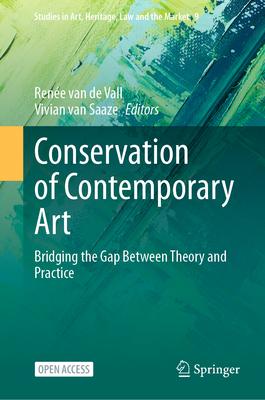This open access book investigates whether and how theoretical findings and insights in contemporary art conservation can be translated into the daily work practices of conservators or, vice versa, whether and how the problems and dilemmas encountered in conservation practice can inform broader research questions and projects. For several decades now, the conservation of contemporary art has been a dynamic field of research and reflection. Because of contemporary art's variable constitution, its care and management calls for a fundamental rethinking of the overall research landscape of museums, heritage institutions, private-sector organizations and universities. At first, this research was primarily pursued by conservation professionals working in or with museums and other heritage organizations, but increasingly academic researchers and universities became involved, for instance through collaborative projects. This book is the result of such collaboration. It sets out to bridge the "gap" between theory and practice by investigating conservation practices as a form of reflection and reflection as a form of practice.

Conservation of Contemporary Art: Bridging the Gap Between Theory and Practice
This open access book investigates whether and how theoretical findings and insights in contemporary art conservation can be translated into the daily work practices of conservators or, vice versa, whether and how the problems and dilemmas encountered in conservation practice can inform broader research questions and projects. For several decades now, the conservation of contemporary art has been a dynamic field of research and reflection. Because of contemporary art's variable constitution, its care and management calls for a fundamental rethinking of the overall research landscape of museums, heritage institutions, private-sector organizations and universities. At first, this research was primarily pursued by conservation professionals working in or with museums and other heritage organizations, but increasingly academic researchers and universities became involved, for instance through collaborative projects. This book is the result of such collaboration. It sets out to bridge the "gap" between theory and practice by investigating conservation practices as a form of reflection and reflection as a form of practice.